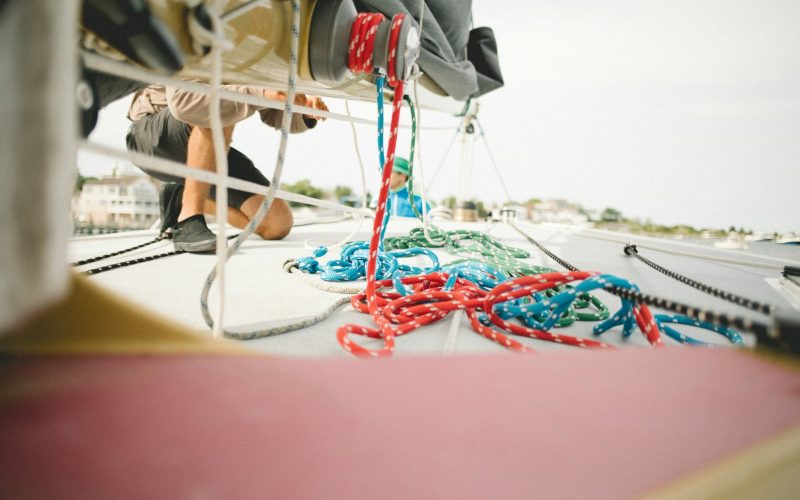Alasdair Babber Shah takes a keen interest in conservation, having worked as a reservation assistant at The Far Horizons safari company. Alasdair Shah is also an experienced seafarer who has travelled the world, having obtained his day skipper licence and several other sailing qualifications through certified RYA training centres. This article will look at the role of deckhand, exploring core duties and the routes to qualifications required to secure a commission with a vessel.
Becoming a deckhand is a popular means of aspiring sailors entering the maritime industry. Deckhands are employed on larger vessels that offer on-the-job training to provide the essential knowledge, skills and experience required for a career in maritime. Whether its purpose is shipping, research, recreation, fishing or oil transportation, deckhands are the most junior role aboard any vessel.
Deckhands are essential to the smooth running of operations and maintenance on large boats. They also play an essential role in protecting the safety of passengers. Their work covers a variety of different aspects of seafaring, including assisting with berthing and unberthing; steering the vessel; monitoring wave depth; communicating with other vessels and harbour authorities; towing and securing cargo; operating and maintaining equipment; and assisting senior deck members. A deckhand’s duties may also include cleaning the ship; loading and unloading cargo; and keeping watch for obstacles in the water.
Life on board can vary considerably depending on vessel type. For example, deckhands working on a cruise liner will have a very different experience to those engaged by a trawling fleet. While a cruise liner deckhand may be called upon to maintain cleanliness and recreational equipment, a trawling vessel deckhand will require knowledge and skills relating to safe trawling practices and the use of heavy fishing equipment.
The role of deckhand requires a basic grasp of maritime safety as well as physical fitness and strength. Deckhands also need good hand-eye coordination and a willingness to work in challenging environments. Depending on the vessel, formal qualifications may be required, although many deckhands receive on-the-job training.
Deckhands need to have manual dexterity, enabling them to manoeuvre through tight spaces when walking on wet or uneven surfaces. They also need the mechanical skills necessary to keep complex machinery working properly, as well as the visual ability to inspect equipment such as towing, dredging and signalling gear.
Employment opportunities for deckhands may be seasonal, depending on the type of ship. Positions are often advertised on social media channels, notice boards and recruitment websites. Before submitting an application, novice deckhands should prepare a CV highlighting their relevant skills, knowledge and experience. It is common for unskilled professionals in the maritime industry to commence their careers aboard inland vessels, for example ships operating on large lakes.
Having secured a position onboard a ship, a novice deckhand can work hard to gain the skills, knowledge and experience required to advance their career. This includes an understanding of authority structures in the maritime world and the various roles that each professional performs. Some roles have specific experience requirements; for example, those working on trawlers may need at least 12 months’ deckhand experience before they can qualify for promotion. In addition, deckhands may need to obtain qualifications or specific licenses to work on a particular type of vessel. To progress from the role of deckhand or ordinary seafarer, the sailor may require a certificate to demonstrate their progress and competency.
Irrespective of the type of vessel, most deckhands spend extended periods at sea, working in a range of different weather conditions. They are typically required to work long hours, with living conditions such as food and sleep varying greatly according to the vessel’s type and purpose.









